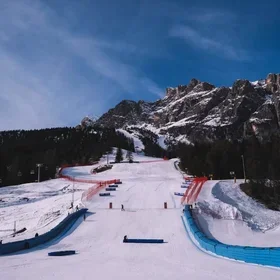As sports journalists cover news that the National Collegiate Athletic Association (NCAA) will consider allowing student-athletes to profit from their names, images, and likenesses, two faculty members in the M.S. in Sports Management program have been notable sources of expertise: Senior Lecturer Len Elmore and Academic Director and Professor of Professional Practice Scott Rosner.
Elmore has personal experience in the matter of amateur athletics and commercial endorsements. An All-American basketball player at the University of Maryland from 1971 to 1974, Elmore went on to play in the ABA and NBA before receiving his J.D. from Harvard Law School in 1987. And as the Baltimore Sun noted, he and other University of Maryland student-athletes were featured in advertisements for Converse as part of their coach’s contract with the shoe company. “I didn’t get a dime for that,” Elmore told the Sun. "I only got one or two pairs of free shoes from the school, nothing from Converse.”
A noted authority on sports law, Elmore was among many observers who welcomed the NCAA’s announcement. “It certainly is about time that one’s property right in their name, image and likeness has value, and they can receive value for the use of it,” he added. “There’s no guarantee that student-athletes will…. But your name and likeness is a property right and by authority you should be receiving some sort of value for it, I’ve always believed that."
Rosner and Elmore—who recently addressed the topic at the SPS Sports Management Conference in October—both remarked on the many uncertainties facing the NCAA as it seeks to update its bylaws by January 2021. Speaking on American Public Media’s Marketplace program, Rosner said that the organization will still need to draw a “clear line of demarcation” between being a college athlete and a professional.
“The NCAA’s announcement was vague, but it had to be because they haven’t reached any conclusions,” Elmore told Front Office Sports. “Yet they did realize they had to do something. Name, image, and likeness, unlike athletic performance, is your natural property right.”
He added: “What’s hard for the NCAA is determining what products and services will be allowed. You could end up with student-athletes going to a school for the money, and not for educational or athletic reasons.”
Learn more about the M.S. in Sports Management program.


